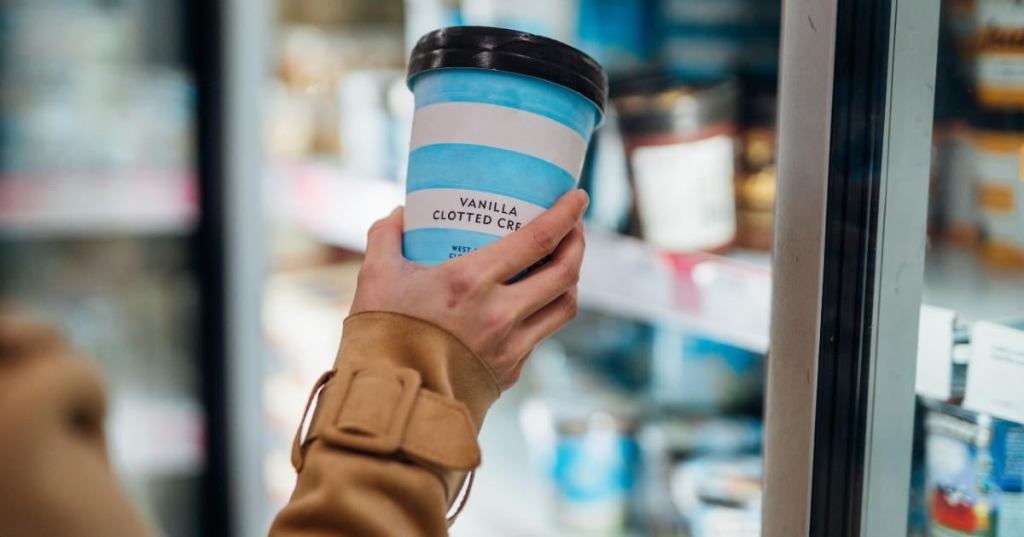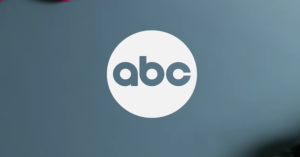Walmart is facing criticism for exploiting the national holiday Juneteenth for financial gain. The retail giant sold the swirled red velvet and cheesecake-flavored “Celebration Edition: Juneteenth Ice Cream” under its label, Great Value. Two Black hands were shown high-fiving on the carton, with the message, “share and celebrate African-American culture, emancipation, and enduring hope.” The packaging was decorated with pan-African colors that are not traditional Freedom Day colors, such as red, white, and blue.
In addition to the Juneteenth-themed ice cream, a Twitter user found that the company also sells Juneteenth-themed party supplies, wine bottles, water bottles, glasses, banners, and T-shirts. After receiving backlash online, the major retailer has since quickly unstocked the ice cream from its stores. Its release went viral, with social media users accusing the product of “profiting from pain” and corporate cultural appropriation of the Black community.
Videos by PopCulture.com
In response, Walmart issued an apology. The corporation released an official statement to People. “Juneteenth holiday marks a commemoration and celebration of freedom and independence. However, we received feedback that a few items caused concern for some of our customers, and we sincerely apologize. We are reviewing our assortment and will remove items as appropriate.”
Walmart also shared a statement with FOX television stations apologizing for the incident. “Juneteenth holiday marks a celebration of freedom and independence,” the statement read. “However, we received feedback that a few items caused concern for some of our customers, and we sincerely apologize. We are reviewing our assortment and will remove items as appropriate.”
President Joe Biden proclaimed Juneteenth, June 19, as the nation’s second Independence Day and a federal holiday. The holiday commemorates the day that a major general of the Union Army arrived in Galveston, Texas, with the Emancipation Proclamation and freed the last enslaved Americans in Texas.
Several variations of “Juneteenth” have been registered with the United States Patent and Trademark Office (USPTO) since Juneteenth became a federal holiday. Currently, only seven of the 32 active “Juneteenth” variations are filed.
WRAL TV News reported that, according to the USPTO’s database, in September 2021, the Balchem Corporation, which created the flavor for Walmart, tried to trademark “Juneteenth” under a 1B basis for foods including desserts such as ice cream. According to the USPTO database, the Monday after the ice cream went viral, the company abandoned its trademark application.
In the document, it is revealed that the corporation’s trademark argument was “not persuasive.” However, Attorney Adjckwc (pronounced A-Zha-Ko) O. Browne presented WRAL with documentation showing that the trademark had been suspended pending someone else’s application under “Juneteenth Joy.”
Mario Bowler is a senior Black man who has a trademark application for “Juneteenth Joy.” A few flavors of popcorn and candles are already available from Bowler’s company, and he says they’re also trying to make jams, jellies, and barbecue sauces.
They’re set to launch their website soon. Founder Bowler told WRAL that he hoped to harness revenue to protect Black culture by applying for a trademark. “We have so much revenue and access in our community, but it’s constantly going out,” said Bowler. “We hope that a brand like Juneteenth Joy that represents a number of different things, we want to recycle those dollars in the community and really do some good things out there.”
Juneteenth, according to Browne, should be viewed as celebrating freedom for all Americans, even those who have profited from it.”Hopefully they’d put it back into the communities that were impacted by what Juneteenth celebrates,” said Browne.
In the past, the company has faced a discrimination lawsuit for locking Black beauty products behind sealed cases, which were sometimes located directly across the aisle from accessible generic products. The company reversed the policy in 2020 after coming under renewed scrutiny for the practice.









